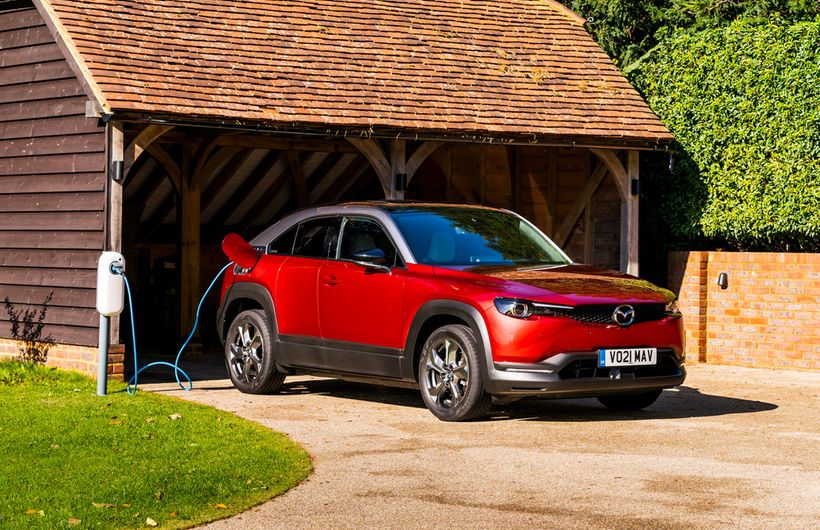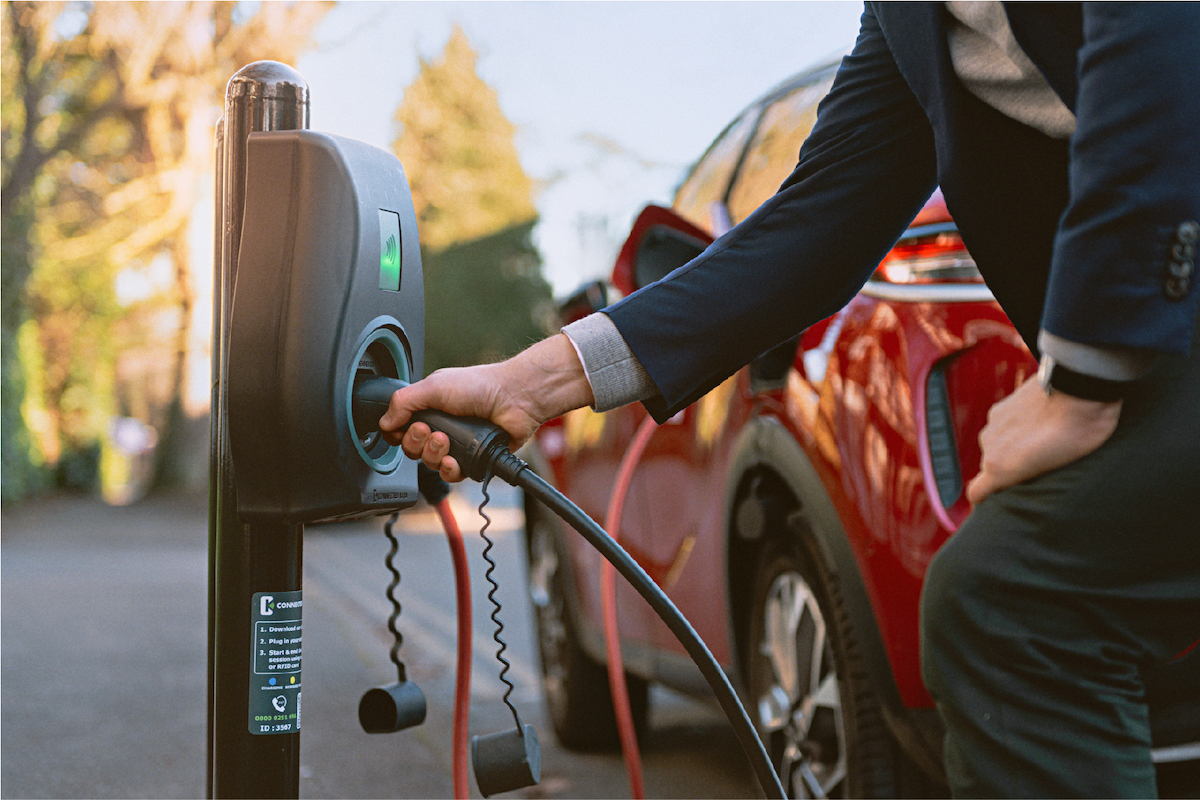The FIVE things you need to know BEFORE buying an electric car

Ginny Buckley
29 Nov 2023Ginny Buckley
29 Nov 2023If you’re considering going electric with your next car or a van you’ve probably got a few questions. Are we right? Thought so. Here at Electrifying.com, we’re answering questions all the time: from the complicated ones about how much money you could save, to the more surprising ones about whether you can drive an electric car in the rain. Yes, we really do get asked that.
Much as we like answering questions, we also like to stay one step ahead. The Electrifying.com team has been driving electric cars for years now, and during that time we’ve learned a lot. So if you’re planning to go electric any time soon, do not click away because these are the FIVE things you need to know BEFORE you buy an electric car
Before you get into the nice parts of ordering a car like choosing the colour and what options you might go for you really need to do your sums first. Yes, we know it sounds boring and about as much fun as sorting your home insurance, but it’s really, really important to get on top of your numbers.
First up, work out how many miles you do in a week - and we have a handy calculator HERE that can help you work that out. You don’t need to be ultra precise – we won’t be checking. This figure is important, because it will tell you whether a pure electric car is right for you. The average weekly mileage in the UK is around 20 miles a day or just over 140 miles a week. If that sounds like you, then bingo - an electric car is going to be perfect for you. In fact, even if you did six times the UK average, you’d still be perfectly suited to an electric car.
If you’ve done those sums and you’re regularly doing more than a thousand miles a week, then you might be better off choosing a plug-in hybrid which can be better suited to high mileage drivers.
Don’t put that calculator away just yet. But we’re nearly done - we promise. You may have heard a term that often comes up when people discuss electric cars: Total Cost of Ownership or TCO as those people who like to talk in code like to call it.
As you will almost certainly have noticed, electric cars usually cost more to buy than the equivalent petrol or diesel cars. The gap is coming down all the time as batteries become cheaper to produce, but right now, you’ll still pay more to go electric.
Or will you? That’s where total cost of ownership comes in. Because owning a car is more than just the price you pay either outright or every month. The monthly cost of running ANY car includes fuel, road tax and other things like maintenance. If you’re driving a company car, you’ll also need to add Benefit in Kind tax to your totals too.
By choosing electric, those ‘other’ costs are usually a lot less. If you’re able to charge at home on cheap-rate electricity, you’ll be able to fill a car like a Citroen eC4 for around five pounds. You’ll also pay no road tax as all electric vehicles are zero rated until 2025.
Maintenance? Well, you won’t be shelling out for a new exhaust or clutch after a few years because electric cars don’t have them. Electric cars have far fewer moving parts than an internal combustion engine car, so there’s less to look after.
And there’s even better news if you have an electric car as a company car. Currently, you’ll pay just 2% benefit in kind tax on a fully electric car - which could save you thousands of pounds over the course of a year.
One of the questions we get asked on a regular basis here at Electrifying is ‘how long will the battery last and do I need to worry about replacing it?’ Well, the simple answer is no, you really don’t need to worry.
That’s because electric car batteries are designed to last the lifetime of the car and actually lead a very pampered life. If we take the pack that’s hidden away under the floor of a Citroen eC4. It has a heater to keep it warm in cold weather and a cooling system to keep it cool when it gets hot. It also has what’s called a battery management system that prevents the likes of you and me doing anything to risk its health. And if you’re still concerned, don’t forget that the battery packs on all electric cars have much longer warranties than the rest of the car.
The pack in a Citroen eC4 comes with an eight year, 100,000 mile warranty. If the capacity dips below 70% of its original capacity in that time, it will get repaired.
We’d all admit that the subject of charging can be a little confusing at first. There are different speeds, different connectors and a whole new bunch of acronyms to get your head around. But trust us, it’s all simpler than it sounds and you’ll be up and running in no time.
Let’s cover off the basics. If you’re able to charge at home, we recommend that you have a proper charger fitted. Yes, you can technically charge an electric car from a three-pin plug, but it will take a very long time and you’ll need to make sure that the socket you plug in to is up to the task.
A charger has to be fitted by a qualified electrician and is wired directly to your incoming supply for safety. It will take a bit of time to get one ordered and fitted, so make sure you get the ball rolling as soon as you’ve made the decision to buy the car.
You should also look into switching to a specific electric-car energy tariff. These are only open to electric car owners, so you may need to show them the order paperwork, but they give you cheap-rate electricity for a few hours every night. You can either tell the car or the charger to start charging during this period and it means that you can fill your car for much less than you would pay during the daytime.
If you don’t have off-street parking or can’t get a home charger fitted, don’t worry because there are plenty of other options. Public charging has advanced in leaps and bounds over the last few years and while there’s still room for improvement, the situation across the country is pretty good. There are two kinds of public chargers, destination chargers where you’ll need to be plugged in for a few hours to fill up, or rapid chargers where you can top up in minutes.
Destination chargers tend to be in places where you’ll leave your car for a longer period of time such as gyms, offices and stations. Rapid chargers are usually on major routes and are a bit like the petrol stations of the electric world.
Unlike a petrol or a diesel car where you fill up at the same speed, things are a little different when it comes to electric. All electric cars have a maximum charging speed and all rapid chargers have a maximum output. Both are measured in kilowatts (kW). The good news is that you can plug a car like a Citroen eC4 into any rapid charger and it will work.
The trick to minimising the time you spend charging is to find a charger that can make the most of your car’s charging speed. Let’s put some figures on this. This car can charge at a maximum rate of 100kW, so if you plugged it into a 50kW charger, you’ll be charging at a slower rate than you would be if you were connected to a 100kW unit. Don’t worry if the charger has a higher output than 100kW, it will only draw as much power as the battery allows.
How do you know which chargers charge at what speeds in advance? The good news is that you can do it from the comfort of your sofa. There are a number of apps that will show you where the chargers are, what speed they are and also if they’re being used. Some of the best ones used by the team are Zap-Map, WattsUp and PlugShare. They are free to download and use and could save you a lot of time. Happy charging.

You currently have no cars in your showroom. Browse our reviews here to start.
Please fill out your contact details below.
 If you only do big journeys occasionally, don't be scared of a car with a smaller battery
If you only do big journeys occasionally, don't be scared of a car with a smaller battery .jpg?width=820&height=530) Charge at night to get the cheapest rates and you'll pay a lot less to fill up
Charge at night to get the cheapest rates and you'll pay a lot less to fill up  Battery packs in electric cars are very well protected and come with long warranties
Battery packs in electric cars are very well protected and come with long warranties  A proper home wall box will allow you to recharge much faster than with a three-pin plug
A proper home wall box will allow you to recharge much faster than with a three-pin plug  The rapid charge network is improving all the time with new sites going live almost daily
The rapid charge network is improving all the time with new sites going live almost daily 